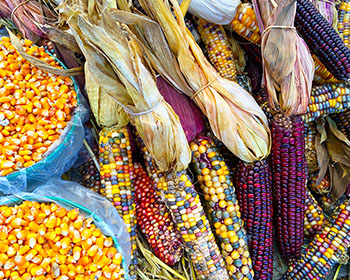

 Research Reports |
| Title: | The Association Between Tribal Transit and Food Insecurity Status Among Native Americans in North Dakota |
| Authors: | Jill Hough, Jeremy Mattson, Hamad Al Qublan, and Baishali Rahman |
| Publication Date: | Dec 2023 |
| Report #: | MPC-23-508 |
| Project #: | MPC-684 |
| TRID #: | 01903514 |
| Keywords: | access, food, health, mode choice, Native Americans, surveys, transportation disadvantaged persons |
| Type: | Research Report – MPC Publications |
 Food insecurity is a persistent problem in the United States that is disproportionately distributed across racial groups. Native American tribes, many located in rural areas, have high rates of food insecurity. Transportation plays a role in the limited access to food. This study focused on transportation used by Native Americans in North Dakota to access healthy foods. A survey was conducted in September and October 2022. Responses from 246 Native Americans revealed that nearly 50% of the respondents have very low food security, 27% have low food security, and 25% have high or marginal food security. An ordered logit model revealed that income, food assistance programs, education, and the ability to drive to the grocery store significantly influence food security. The study found that 20% of respondents do not drive or have access to a vehicle for transportation. Native Americans in North Dakota are significantly less likely to own or have access to a vehicle. Most respondents (71%) drive to get groceries, while 27% get a ride from someone, and 21% walk. Age, income, living within walking distance of a grocery store, availability of fresh food, and living on the reservation were found to be positively associated with the likelihood of an individual eating healthy food every day.
Food insecurity is a persistent problem in the United States that is disproportionately distributed across racial groups. Native American tribes, many located in rural areas, have high rates of food insecurity. Transportation plays a role in the limited access to food. This study focused on transportation used by Native Americans in North Dakota to access healthy foods. A survey was conducted in September and October 2022. Responses from 246 Native Americans revealed that nearly 50% of the respondents have very low food security, 27% have low food security, and 25% have high or marginal food security. An ordered logit model revealed that income, food assistance programs, education, and the ability to drive to the grocery store significantly influence food security. The study found that 20% of respondents do not drive or have access to a vehicle for transportation. Native Americans in North Dakota are significantly less likely to own or have access to a vehicle. Most respondents (71%) drive to get groceries, while 27% get a ride from someone, and 21% walk. Age, income, living within walking distance of a grocery store, availability of fresh food, and living on the reservation were found to be positively associated with the likelihood of an individual eating healthy food every day.
Hough, Jill, Jeremy Mattson, Hamad Al Qublan, and Baishali Rahman. The Association Between Tribal Transit and Food Insecurity Status Among Native Americans in North Dakota, MPC-23-508. North Dakota State University - Upper Great Plains Transportation Institute, Fargo: Mountain-Plains Consortium, 2023.